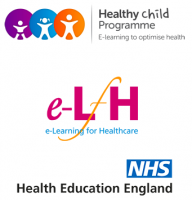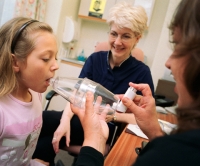Meeting Health Needs of School Age Child course for Medical Doctors



This session will explore the key messages about public health in the context of school health and new models of service delivery. In particular, it will focus on the World Health Organization’s definitions of public health and the study on Health Behaviours in School-aged Children (HSBC).
Learning objectives
By the end of this session you will be able to:
- Summarise information regarding public health and the causes of public health problems in the 21st century
- Summarise issues that are underlined in the Health Behaviours in School-aged Children (HBSC) study by the World Health Organization (WHO)
- Identify the knowledge and skills needed to work together for optimum public health outcomes for children and their families
- Choose the best environment for practice: hospital, clinic, school, classroom, home or wider community
- Evaluate the different methods of communication: face-to-face, email, mobile phone, text and letters to support the child, parents and school
This session uses self assessments that help you check what you have learnt. You do not have to use them and your answers are not seen by anyone else.
Before commencing this session you should read:
- Potter K, Wright J. Integrating the Children’s Public Health
- Workforce. In: Sines D, Fanning A, Potter K et al., eds. Community and Public Health Nursing. 5th edn. London: Wiley Blackwell, 2013:91-112
- Wright J. The School Health Team. Healthy School Child (411-002). DH e-Learning for Healthcare. 2014
- Completed HSC session: The School Health Team (411-002)
Jane Wright is a senior lecturer and course leader for Specialist Community Public Health Nursing at Buckinghamshire New University. She has a background in adult nursing and school nursing in Buckinghamshire. Jane has written a number of books and articles about school nursing practice, is on the editorial board of the British Journal of School Nursing and has been involved with the Department of Health School nurse Implementation Plan.


- Radiology – Integrated Training Initiative (R-IT...
- Posted By eIntegrity Healthcare e-Learning
- Posted Date: 2024-11-14
- Location:Online
- This session reviews which chambers contribute to the ‘normal cardiac outline’ and examines how specific chamber enlargement or absence alters the normal cardiac shape. It will describe the different diagnoses, which result in characteristic
- Radiology – Integrated Training Initiative (R-IT...
- Posted By eIntegrity Healthcare e-Learning
- Posted Date: 2024-11-14
- Location:Online
- This session provides an overview of the clinical manifestations of haemangiomas, lymphatic and vascular malformations, their radiological work-up plus typical imaging findings.
- Radiology – Integrated Training Initiative (R-IT...
- Posted By eIntegrity Healthcare e-Learning
- Posted Date: 2024-11-14
- Location:Online
- This session covers imaging and diagnosis of paediatric mediastinal masses, and is organised based on their location in the mediastinum.
- Radiology – Integrated Training Initiative (R-IT...
- Posted By eIntegrity Healthcare e-Learning
- Posted Date: 2024-11-14
- Location:Online
- This session discusses radiographic anatomy of the normal mediastinum and its compartments containing different structures and why this is useful when interpreting an abnormal image. The silhouette sign and how it is used to localise a mass on chest radio
- Radiology – Integrated Training Initiative (R-IT...
- Posted By eIntegrity Healthcare e-Learning
- Posted Date: 2024-11-14
- Location:Online
- The session looks at pneumothorax, pneumomediastinum, air leaks in neonates, air leaks in older children and post-traumatic air leaks.






